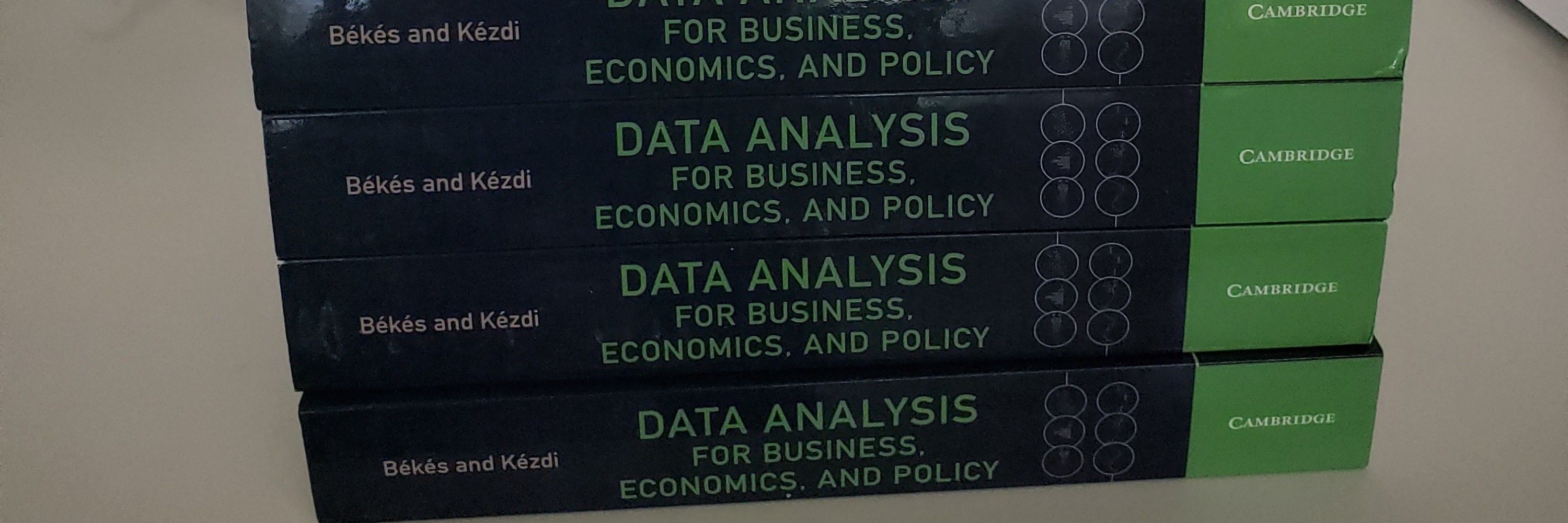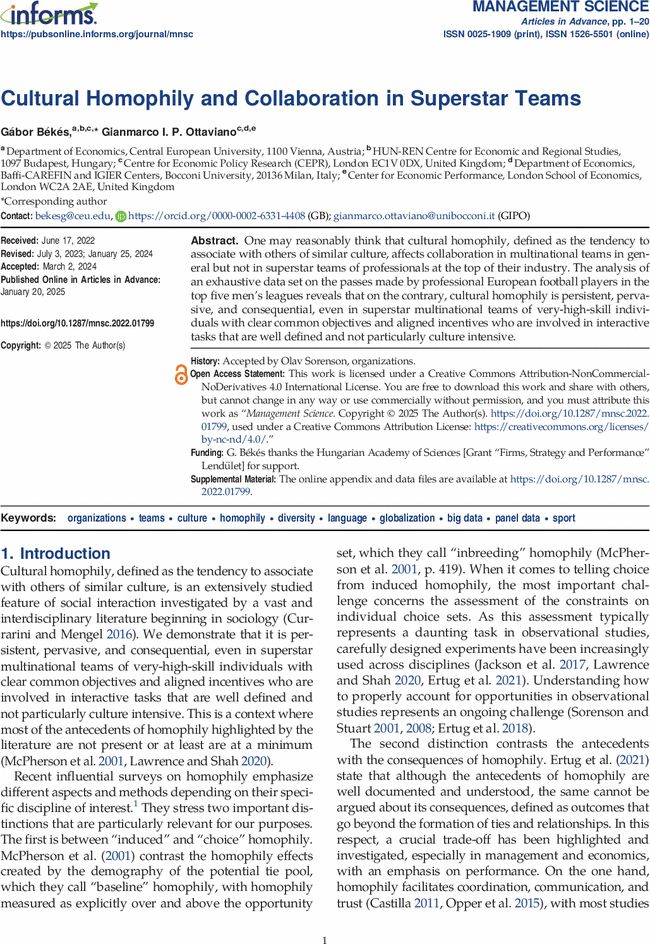
Economics Associate Prof, CEU Vienna.
Trade, applied IO, organisations. sites.google.com/site/bekesg
Author, "Data Analysis for Business, Economics, and Policy" (Cambridge UP) https://gabors-data-analysis.com/
@arsenalfc fan. ..
more
Economics Associate Prof, CEU Vienna.
Trade, applied IO, organisations. sites.google.com/site/bekesg
Author, "Data Analysis for Business, Economics, and Policy" (Cambridge UP) https://gabors-data-analysis.com/
@arsenalfc fan.

pubsonline.informs.org/doi/abs/10.1...
Oh, we use football data. #EconSky

(wrong answers, only)
Reposted by Paul Goldsmith-Pinkham, Juan Moreno‐Cruz, Gábor Békés

Fast and user-friendly econometrics estimations: The R package fixest
By Berg\'e, Butts, McDermott

doi.org/10.1016/j.jp...
Way too much (us) politics here.
But on AI its better.
I remember when we discovered @duckdb.org and discussed it, maybe @koren.mk or @julianhi.nz said stg like this could be done.
But stunned by speed.
Reposted by Gábor Békés
Watch or listen:
• YouTube: www.youtube.com/watch?v=8lF7...
• Spotify: open.spotify.com/episode/5Ie6...
• Apple: podcasts.apple.com/us/podcast/t...
Reposted by Paul Goldsmith-Pinkham, Gábor Békés

This example takes 180m rows of NYC taxi data and computes the model in < 1 second.
On a laptop.
Reposted by Gábor Békés

A nice write up
www.theregister.com/2026/01/26/v... @koren.mk @julianhinz.bsky.social @aaron-lohmann.bsky.social @carlbergstrom.com
Reposted by Paul Goldsmith-Pinkham, Gábor Békés, Laurent Bergé
@jamesbrandecon.bsky.social and I have been chipping away at `dbreg`, a 📦 for running big regression models on database backends. For the right kinds of problems, the speed-ups are near magical.
Website: grantmcdermott.com/dbreg/
#rstats
[1/2]
Reposted by Gábor Békés

Reposted by Mathieu Parenti, Gábor Békés, Meredith A. Crowley
Reposted by Gábor Békés
The. Fck
So carney is right. No turn back in next decade.
Reposted by Gábor Békés
The only condition needed is that ai-assisted usage and direct usage of the *same* software package are closer substitutes than different packages. We are sure this holds (though plan to do more data work to confirm), that’s why we opted for the strong title.
But fairly plausuble and generic conditions id say. @koren.mk
Reposted by Florian Altermatt, Dean Eckles, Miklós Koren

Our most direct title yet. @koren.mk @julianhi.nz @aaron-lohmann.bsky.social
Theory paper with numbers and policy recs. First at arxiv.org/abs/2601.15494
Comments welcome.
@ceu-economics.bsky.social @kiel.institute

www.ceu.edu/news/2026-01...
Reposted by Wolfgang Huber, Gábor Békés

A postdoctoral researcher at the Kyiv School of Economics and a recent PhD graduate from the University of Bologna, Dariia has been an avid R user for seven years.
user2026.r-project.org
Reposted by Gábor Békés
evaluating AI tools for devs - for coding, for infra (eg gateway), for code review etc. Tons of vendors, unclear which one to buy.
Share what you / your team found, and I'll share what others are seeing and what they measure (cont'd)
I recall @koren.mk found some issues for stata re base time
koren.dev/software/
Reposted by Gábor Békés

It's legit in international context, ok. But can I use it in college classrooms?

